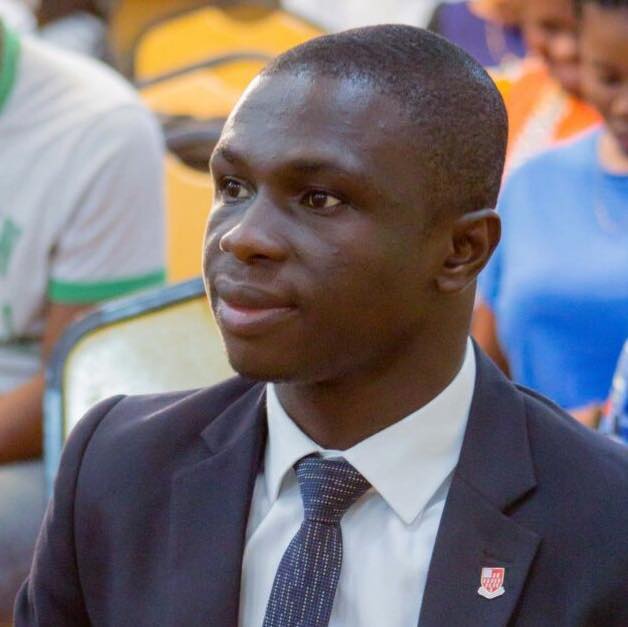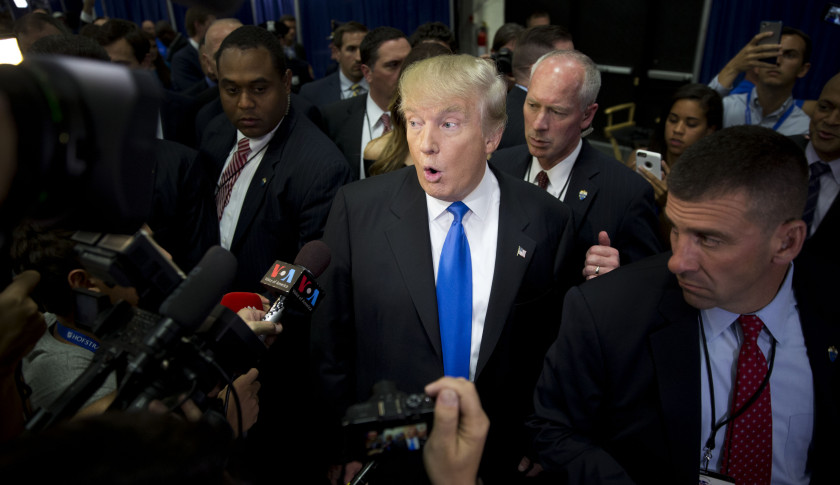How did this just happen? Unusual, unexpected, strange, weird, unprecedented and now bizarre are but few of the words used by mainstream media to describe a bitter election that has produced Donald Trump, 45th President of the United States of America .
Many have questioned my fixation on the US elections, after all I am not a citizen of US. But here is why it matters to me. Aside having some family members who are bona fide citizens of America, as a student of world politics, the US presidential election serves as one of the best spring boards to explain, how the spiral of silence theory works in reality.

Samuel Darko, Writer
Originally proposed by German political scientist Elisabeth Noelle-Neumann in 1974, Spiral of silence is the term meant to refer to the tendency of people to remain silent when they feel that their views are in opposition to the majority view on a subject.
Let’s refer to recent history-I will cite same examples used to explain how the world is moving towards protectionist world order differently.
BREXIT (2016)-the pundits pronounced it dead on arrival. But as we later learnt, the majority of those who voted were actually in favour.
Still in UK, again, pundits in 2015 predicted a difficult election for former Prime Minister David Cameron. But as it turned out, Mr. Cameron won the election with an outright majority after Labour was virtually wiped out by the SNP in Scotland and the Liberal Democrat vote collapsed. Â
President Obama’s second term bid was said to be too close to call. The election was widely expected to be a nail-biter. But, in the days and weeks, after you heard that Obama got 51.1 per cent of the popular vote to Mitt Romney's 47.2 per cent.
And now, pundits are still trying to explain how Mr.Trump managed to beat the “systemâ€. The establishment gave him no chance, but he had the support of the “silent majority†apparently.
People were so afraid to associate with the name TRUMP openly. They had been cowed, pressured, and suppressed by popular voices in the American media corporation. He was and still is seen by SOME as weird, uncensored, and radical. It was said he had no policy, small budget, no message and no ground campaign structure- but as it turned out, he was speaking the language of the silent majority-they were too frightened to openly support him. Â
So the STRONG MAJORITY showed the world and the Democrats, on election Day that they are indeed TRUMP.
So, how does the spiral of silence kick-in back here in Ghana?
In a deeply polarised political environment, many may be unwilling to make their voices known or heard either in mainstream media or on social media for fear of backlash from patrons of the two main parties, the ruling National Democratic Congress,  and largest opposition New Patriotic Party. Â
Here’s why:
The politics of patronage dictates that you are either with us or against us. There is no middle ground. Many fear it will be difficult to get a job for instance or some kind of assistance if you do not belong.
Fear of victimization. In a system which gives so much power to the executive, there is the tendency your business, job or network can be disrupted or collapsed if you show open or naked opposition to those in power.
We live in a society where if you belong to the Ewe ethnic group, you are presumed to be affiliated to NDC. On the flip side, Asantes also have an automatic affiliation with NPP.
Trying to belong comes with a lot of convincing due to a multitude of suspicion.
Media ownership and lack of regulation has ensured that many media houses are now controlled by politicians and their surrogates. Such platforms are used in many occasions to propagate one sided messages leaving out popular masses.
Poverty and illiteracy prevent  majority of the populace from contributing to mainstream media and social media platforms which in the lead up to elections have been hijacked by various interests. The constant fake websites, fake apps and fake stories are given expression which may be far from reality.
Although chapter five of the 1992 constitution guarantees fundamental human rights-freedom of speech/expression, freedom of thought, conscience and belief, freedom of assembly, all of which ultimately with rest the individual. Â
Some choose not to invoke or exercise such rights either deliberately or out of fear, oppression and anxiety. These persons may hardly comment or write a post on political campaigns and other happenings on Facebook or twitter or call in to a radio or tv programme. But do not be mistaken, they do monitor, listen and do have opinion on those very matters. They have only decided not to talk.
The common mantra in local language which literally translates, “I don’t want trouble†and “it’s not part of my worry†contribute to the breeding of the “silent majority†who surfaces almost every four years to have their say through the power of the thumb.
The only variable which may make this concept constant is a free, fair and credible election.
Â





